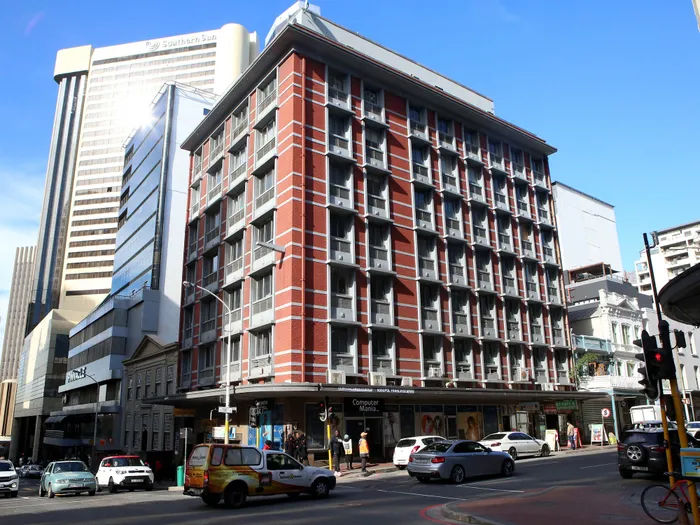Understanding student accommodation prices in South Africa: monthly rent from R4k to R25k

A student accommodation facility for Cape Peninsula University of Technology (CPUT) students.
Image: Brendan Magaar/African News Agency/ANA
Student accommodation rental prices vary considerably across South Africa, typically ranging from R4 000 to R25 000 per month, depending on location and facilities.
However, the cost extends beyond monthly rent. Students must also budget for deposits (typically an amount equal to the rent plus a key fee and condition report fee, which is 1.5% of the deposit held in trust.
This fee covers the administration, reconciliation and preparation of the condition report at the time of deposit release, in accordance with the Property Practitioners Act, 2019, and the Consumer Protection Act, 2008, administration fees, utilities, groceries and transport.
On average, students should allocate between R7 000 and R15 000 per month for total living expenses, depending on their lifestyle and accommodation choice.
“Many first-time students and their families are surprised by the total financial commitment,” says Elmor Kruger, co-owner of Century 21. “That's why we take time to break down all costs upfront, ensuring there are no surprises later. Transparency is key to making informed decisions.”
In Potchefstroom, the company says students can expect to pay between R3 500 and R14 000 monthly for private accommodation, making it one of the more affordable student cities in the country.
As the 2026 academic year approaches, students and parents across South Africa are beginning their search for suitable accommodation. With over 500 000 student beds needed nationwide, securing the right housing early has become essential for academic success.
“Finding the right accommodation sets the foundation for a successful university experience,” says the co-owner of Century 21.
“We’ve built our business around understanding that students need more than just four walls and a roof. They need security, accessibility, value for money and peace of mind during what should be an exciting time in their lives.”
The multinational real estate organisation says that beyond affordability lies an equally important consideration: safety. Recent media attention on student security has heightened awareness amongst families sending their children to unfamiliar cities.
Century 21 Student Hub says it addresses these concerns by pre-vetting all properties, ensuring they meet basic safety standards, including secure access control, adequate lighting and proximity to campus.
It says its team also educates students about what to look for when viewing properties independently. They add that they have a mandate with Mooirivier Beskerming, who patrol all their properties twice daily. Emergency contact details are also displayed on their premises for quick access.
“We want students to feel confident and secure in their accommodation choices,” says Kruger. “Our role is to protect students by connecting them only with legitimate, accredited landlords and properties that meet our quality standards.”
According to the organisation, the cyclical nature of student accommodation (September to February annually) means timing is everything. It says students waiting until December or January often find themselves with limited options and higher prices.
Century 21 Student Hub recommends that prospective students begin their accommodation search as soon as they receive university acceptance, typically between September and November. This approach provides:
- Access to the widest selection of properties.
- Better negotiating power on rental rates.
- Time to arrange viewings and compare options thoroughly.
- A relaxed, informed decision-making process.
When evaluating accommodation options, it says students should consider several factors beyond price. Proximity to campus can save significant money on transport whilst allowing for better time management.
All-inclusive rental packages (covering utilities and Wi-Fi) provide budget certainty and eliminate unexpected costs.
Security features, including 24/7 guards, CCTV coverage and biometric access, should be non-negotiable. Furnished units reduce initial outlay, whilst access to study spaces and a reliable internet connection directly impact academic success.
Purpose-built student accommodation is on the rise across South Africa, with modern developments offering amenities specifically designed for student lifestyles. These include high-speed internet, communal study areas, social spaces and green building features such as solar power and water conservation systems.
“We describe ourselves as Smarter. Bolder. Faster. because we genuinely believe the student accommodation process can be straightforward and positive,” Kruger notes. “Whether you're a first-year student or a parent helping your child find housing, having an experienced professional in your corner makes all the difference.”
Century 21 Student Hub says it works closely with property owners to ensure their investments are well-managed whilst matching students with accommodation that suits their needs and budget. This dual focus creates a win-win situation where both students and property owners benefit from professional, reliable service.
For students preparing for the 2026 academic year, it says its message is clear: start early, research thoroughly and do not hesitate to seek expert guidance.
In a competitive market, preparation and professional support can mean the difference between securing your ideal home and settling for whatever remains available.
In September, the National Student Financial Aid Scheme (NSFAS) announced that it had developed funding mechanisms to address the substantial shortfall experienced in the 2025 academic year.
To this end, NSFAS and the Department of Higher Education and Training (DHET) said they reprioritised funds within their existing budget of R13.3 billion to support 34 000 students with blocked registrations and second-semester registrations of 15 000 students.
The scheme said students who were affected by the funding deficit included university students who applied during the TVET cycle, students whose registration confirmations were received after the registration portal had been closed, students who had successful appeals that were unfunded and second-semester registrations.
It said student accommodation providers who were impacted by the above will also be in a position to now receive payments for services rendered.
“This marks a significant moment in the stabilisation of NSFAS for the 2025 academic year. It, however, does not underscore the need for a sustainable financing and funding framework for the higher education sector,” said NSFAS a month ago.
Independent Media Property
Related Topics: